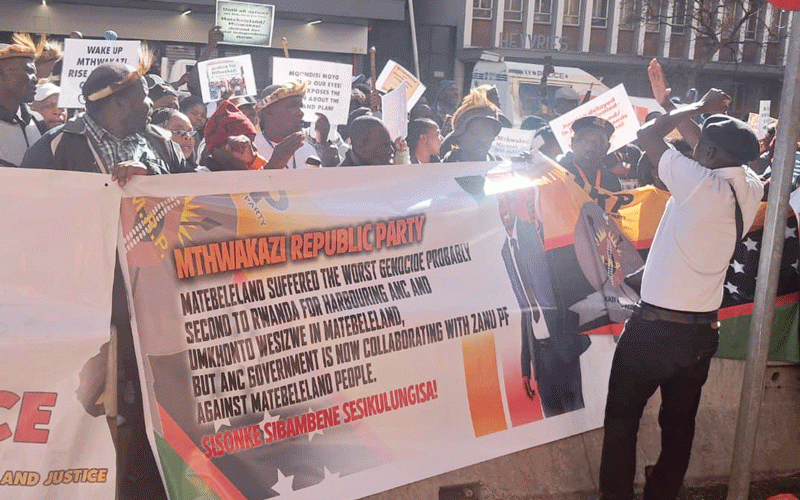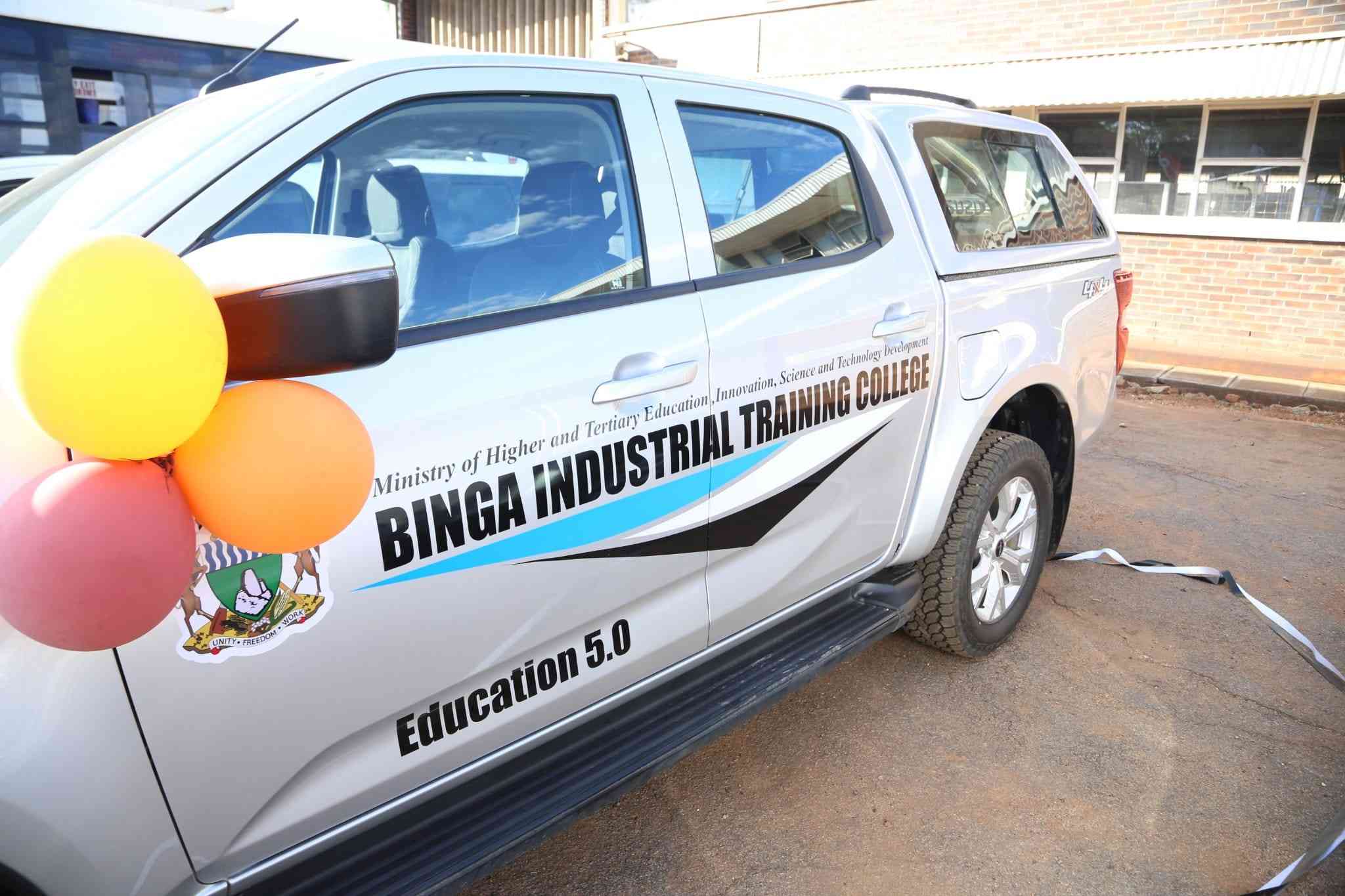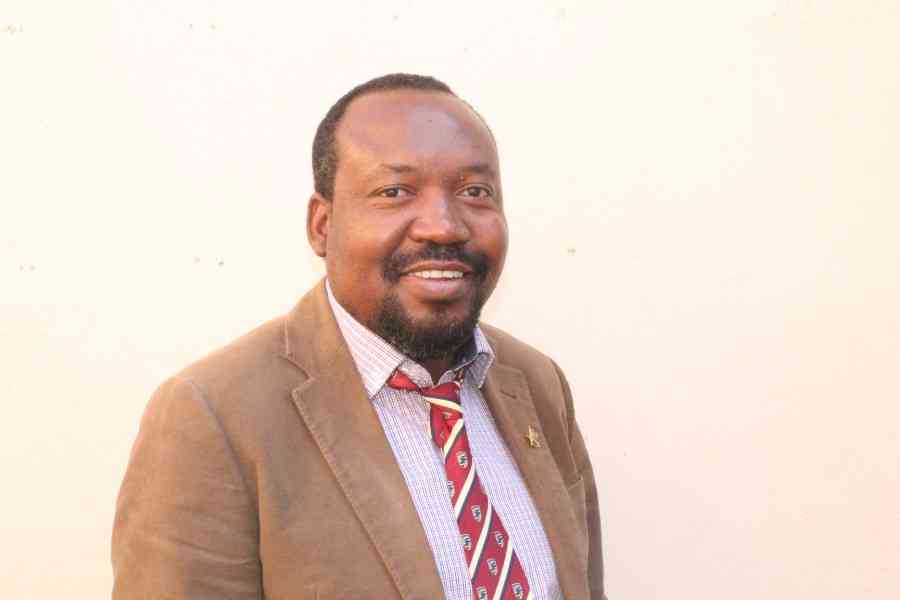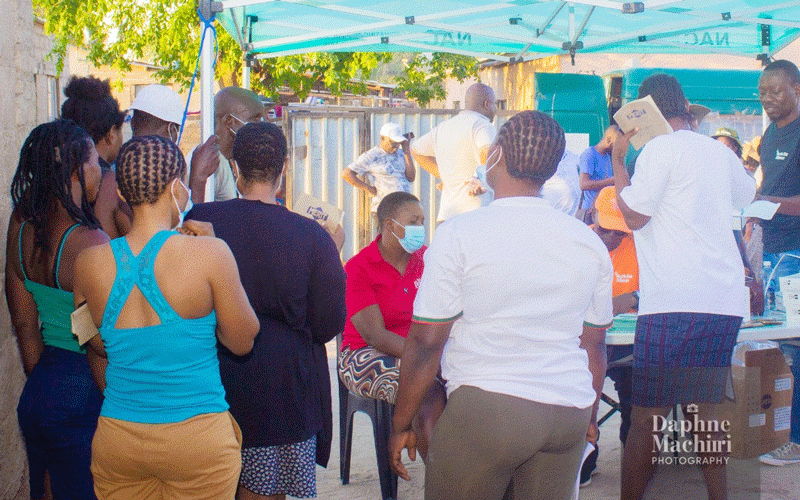
SOME Zimbabweans based in South Africa joined Mthwakazi Republic Party (MRP) activists in a protest outside the United Nations offices in Pretoria yesterday to register their concerns over looming Gukurahundi hearings led by traditional leaders.
They voiced concerns over what they described as a flawed process in the build-up to the upcoming Gukurahundi public hearings.
The hearings were initially scheduled to begin on June 26, but delayed due to logistical problems.
The developments come at a time when the Bulawayo High Court challenge filed by Zapu leader Sibangilizwe Nkomo, who sought to halt the hearings after raising several red flags including the prominent role given to traditional leaders, was dismissed by the courts on the ground that it was not an urgent matter.
MRP secretary-general Velile Moyo yesterday said they were at the UN offices in Pretoria, where they submitted a petition regarding the issues affecting people of the Matabeleland and Midlands region.
The petition also outlined the issue of Gukurahundi.
“The reason why we are approaching the UN is because it is the organ that governs all the nations, they are responsible for the things happening around the world, especially on issues that involves genocide where people are being killed and marginalised,” Moyo said.
“It is the responsibility of the UN to act and take decisive measures, especially in Zimbabwe on issues of human rights abuses, and also looking at the issue of Gukurahundi, which happened between 1983 and 1987 culminating in the Unity Accord signed by Zanu and PF Zapu.”
- Ziyambi’s Gukurahundi remarks revealing
- Giles Mutsekwa was a tough campaigner
- MPs are ignorant: Charamba
- New law answers exhumations and reburials question in Zim
Keep Reading
He said it was sad that the Zanu PF-led government continues to bring up commissions whose reports on the genocide continue to be classified.
The MRP secretary-general said the UN has provisions that may assist in curbing the abuse of citizens which have pushed most of the people of Matabeleland out of the borders to seek refuge.
MRP leader Mqondisi Moyo early this week said they wrote to the UN representative Urika Richardson in Pretoria notifying her of their intention to demonstrate for Matabeleland self-determination.
He said they wanted to ask the UN to probe President Emmerson Mnangagwa and his allies of their involvement in the Gukurahundi killings that happened from 1983 to 1987 in Matabeleland and Midlands.
In a letter dated June 30, directed to Richardson, Moyo advised her of what he termed “grave and imminent threat” to the lives and safety of people in Matabeleland, and the victims of the Gukurahundi genocide.
“President Mnangagwa’s government, a key perpetrator of this heinous crime (Gukurahundi), is planning to eliminate the remaining survivors who possess critical information and evidence about the atrocities committed during the genocide,” Moyo wrote.
He said the Gukurahundi genocide, a brutal campaign orchestrated from 1983 to 1987, “left a painful mark on our people”.
He claimed that the looming Gukurahundi hearings were a blatant attempt to identify and silence the remaining key survivors, victims and witnesses.
Moyo said these hearings, meant to be held in private, devoid of transparency and accountability, were designed to weaken impending litigation and further oppress our people.
On October 27, 2021, MRP also marched to the UN office in Pretoria, where they submitted a petition to Isaac Letwaba, who assured them that their concerns would be escalated to the highest office at the UN headquarters in New York.
He also noted that on November 7, 2024, their official, Gugulethu Mpofu, met with a UN representative in Pretoria, who promised that they would receive feedback on their petition before December 25, 2024.
“However, despite our expectations, we have not received any response or update on the status of our petition.
“This lack of response has necessitated our follow-up march and petitioning on July 4, 2025,” Moyo wrote to the UN representative.









